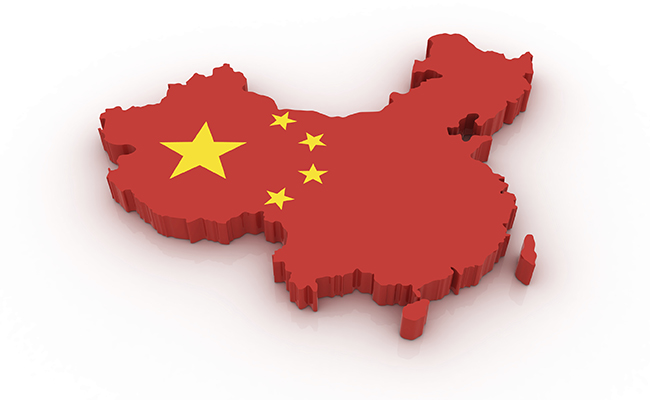The week that was: China’s exports do better than expected, local officials get new evaluation criteria, and e-commerce giant Alibaba invests in white goods major Haier.
Export and retail numbers beat expectations
China’s exports in November surprised analysts again—the 12.7% year-on-year increase tops a Reuters’ poll of a 7.1% rise and more than doubles October’s growth rate of 5.6%. Although import also increased 5.3% from last year, strong demand from overseas helped China post a trade surplus of $33.8 billion, its largest in almost five years.
While rising exports from the factory of the world may indicate a stronger global recovery, some economists have raised a red flag that the number may be distorted by “speculators moving money into the country through fake trade transactions”, Reuters reported. They are, apparently, betting on the yuan to continue its rally.
China’s official trade numbers have come under scrutiny multiple times earlier this year, triggering the government to crack down on fake export invoices used to conceal illegal money flows.
Among a set of economic numbers released over the past weekend, China’s retail sales growth also beat expectations, slightly, with a 13.7% rise. Analysts contribute the pickup to the ‘Singles’ Day’ shopping spree on 11th November, when e-commerce titan Alibaba posted $5.7 billion in sales on its websites.
A New Report Card for Local Officials
The GDP-centric evaluation system of local officials’ performance has long been widely criticized to be one of the root causes of the ever-rising property prices as well as deteriorating natural environment—local governments will do anything that drives economic growth, even if it’s just on paper.
The system as also put many of them in heavy debt, one of the major risks of the Chinese economy and obstacles to the country’s financial reform down the road.
Now the central government wants things to change—according to Xinhua, China’s official news agency, a document released on Monday by the Central Organization Department said that “GDP growth shall not be the only indicator of (the) party and government leaders’ performance”, and officials who “borrow irrationally… should be punished, even if (he or she) has left office.”
The document also listed “environmental protection” and “absorbing overcapacity” as key indicators of the evaluation. But this does not mean that economic growth is out of the equation—another story of Xinhua on Wednesday quoted a senior official from the organization department that “economic development is still the center, and reasonable growth is a must.”
China’s M&A on the rise
A halt in IPOs and the proposed liberalization of rules regarding mergers and acquisitions (M&As) of listed companies have facilitated a wave of consolidation, says Zero2IPO Group, a Chinese financial service provider.
According to numbers released by the firm on Thursday, which goes by Qingke in Chinese, the number of M&A cases and the total value have both skyrocketed. During the first 11 months of 2013, the report said, 1,015 deals worth $72.6 billion have been made, up by 23.8% and 65.8% from last year respectively.
Energy and financial sectors took more than half of the M&A value—about $38.7 billion, while food and beverage industry grabbed $8.3 billion of the share.
Qingke’s report also said that the value of Chinese companies’ overseas acquisitions have increased by 21% year-to-year, totaling about $32.2 billion. Purchases of Canadian oil company Nexen by China National Offshore Oil Company (CNOOC) and American pork producer Smithfield by Shuanghui were cited as the main growth drivers.
Numbers from Dealogic, a financial data provider, painted a similar picture on China’s cross-boarder purchase, reported the Wall Street Journal on Wednesday. The report said the total volume of Chinese acquisitions overseas were up 23% by early December to a “record $67.1 billion so far”.
Alibaba fights for “the last mile” by investing in Haier
China’s largest e-commerce company has invested about HKD 2.8 billion into the Chinese appliance manufacturer Haier earlier this week. The vast majority of the investment, according to media reports, has gone to seize a 10% share of a logistics subsidiary of Haier.
Analysts see the deal as the latest move by Alibaba to gain an edge in China’s competitive logistic market. The delivery arm of Haier reportedly has set up shops in more than 26,000 villages and towns, where online shopping is still rare.
Alibaba is not the only company eyeing for the third- and fourth-tier markets. One of its major competitors, JD.com, has reportedly built a network of 1,066 delivery stations across 521 cities all over the country, garnering 64.6% of the online appliance market.
Alibaba, which now ranks the second in this field, is trying to catch up—appliance sales are expected to bring in $16.7 billion in 2013, doubling last year’s figure.
Testing the waters in special economic zones
To take advantage of more liberalized financial policies, more than 1,000 companies have set up shop in the newly opened Shanghai Free Trade Zone since late October—and the trend seems to be continuing.
Over the last weekend, Yihaodian, a well-known Chinese e-commerce retailer specialized in grocery, announced that it has consolidated its services in the free trade zone with a new website called www.yhd.com. Yu Gang, president of Yihaodian said setting up in the zone would gain the company policy support in regards to cross-border e-commerce and trade settlement.
Tencent, Asia’s largest Internet company, is also tapping into preferential policies. According to the South China Morning Post, the tech giant has invested more than $160 million into e-commerce and internet finance companies in Qianhai economic zone in Shenzhen.
Though it hasn’t gotten as much attention as the Shanghai Free Trade Zone did, Qianhai was established three years ago to test out freer yuan transactions and capital-account convertibility, SCMP reported.
(Image courtesy: iStockphoto)



















